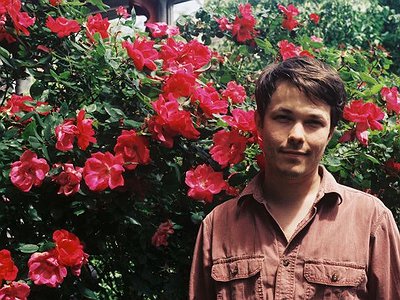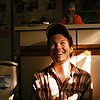Can you talk about a breakthrough work, event or performance in your career? Why does it feel special to you? When, why and how did you start working on it, what were some of the motivations and ideas behind it?
I have a hard time revering much of anything I’ve been a part of, no forced humility or anything like that, but it all feels dynamic and a part of the growth process. None of it feels worthy of unshakeable reverence. I’ve had a lot of fun trying to preserve fleeting moments in amber, whether or not I’ve been successful.
I will say I do feel the most pride in the music I’ve released with the group Hour. We released two full length records in 2018 that I wrote pretty rapidly and brought to a band that grew to include almost ten musicians. Those are the only two records I’ve made or been involved with that I can still revisit with some level of wonder.
The music seems compositional in its execution, but it was born out of group improvising over these little guitar ideas I’d accumulated. It touched on so many emotions I felt but had no language to speak, and was received so warmly by people who I couldn’t have anticipated caring. The band just played a show yesterday, possibly for the last time in its current iteration, and it sent me to the moon. I felt how I imagine the great liturgical composers felt writing music to reach the ears of God, the way one feels upon hearing the pipes of an organ consume the cavernous space overhead.
There are many descriptions of the ideal state of mind for being creative. What is it like for you? What supports this ideal state of mind and what are distractions? Are there strategies to enter into this state more easily?
I was recently talking to Robert Stillman about this. He is a composer/improvisor I deeply admire, whose music has had a lasting influence on my own work and thinking on this craft. Fostering that ideal state of mind seems to require uninterrupted time! It feels as if daily life wraps a thin film around our brains that the act of free play works to unwrap. For me, that unwrapping always occurs if I can devote enough time to it.
It’s no surprise that my smartphone is most at odds with this manifesting this devotion. I can’t profess to having figured out a way to facilitate this sort of practice unfailingly, but I am trying! Put the phone down and play. Don’t stop if it doesn’t sound good. Allow for limitations and see what happens.
Music and sounds can heal, but they can also hurt. Do you personally have experiences with either or both of these? Where do you personally see the biggest need and potential for music as a tool for healing?
I generally employ lyricism to explore my pain and anxiety, though I consciously pair the words with music that is reaching for the transcendent. In my own process, the pain comes from writing words that plumb too deep or pick at scars only freshly healed. I am grateful to have a forum to feel like that without being overtaken. Why else engage with works of tragedy? The catharsis is both safe and intoxicating, like you are pulling off some death-defying stunt from the comfort of your bedroom.
In regards to healing, encouraging a sense of play has immense restorative potential. Making music is a fun thing to do! It can literally be anything! It can be loud, soft, atonal, melodic, anything at all! I feel most dead when I forget this, and most alive when I remember.
There is a fine line between cultural exchange and appropriation. What are your thoughts on the limits of copying, using cultural signs and symbols and the cultural/social/gender specificity of art?
I think music has potent cross-cultural potential (as nothing exists in a vacuum), but we can’t pretend cross cultural exchange is an entirely benevolent process.
For example, the world would be a worse place to live without bossa nova music, but it has clear roots in the trans-Atlantic slave trade. Elevating marginalized voices feels vital in this new era of disseminating music via the internet. With increased access comes the ability to engage directly with the work of artists reflecting their specific lived realities. Mimicry is embedded in the making of art, but context matters.
Our sense of hearing shares intriguing connections to other senses. From your experience, what are some of the most inspiring overlaps between different senses - and what do they tell us about the way our senses work?
I love when senses are at odds with each other. Looking out at some beautiful vista next to someone’s trash laid out on the curb, its odor invasively wrestling you from your reverie. Or lying in bed, on the precipice of sleep as a large truck idles outside your window. The interplay of the senses, especially within music and song, seems pretty boundless.
I write about food a lot in my songs, especially the disconnect between the way something tastes in the fondness of memory verses how it actually tastes. Songs can add color to and redefine memories like the restoration of old fresco paintings.
In my work, I like exploring the loneliness of the sensing being, the unknowability of someone else’s perceived reality. It’s all connected, though I’m not quite sure of the specific mechanisms at play.
Art can be a purpose in its own right, but it can also directly feed back into everyday life, take on a social and political role and lead to more engagement. Can you describe your approach to art and being an artist?
For me, art is a defense against a life without wonder. I have been fortunate enough to live a life where my imagination has been cultivated and given space, allowing for conceptions of worlds beyond daily reality. In my work, I try to balance an honest reckoning with my deepest fears and doubts with a belief that they can be overcome.
This as a project feels inherently political. Communicating both doubt and beauty is powerful dissent during a time where we are so overstimulated and oversold. My hope is my music can offer space for reflection and solace, both of which have become increasingly rare.
What can music express about life and death which words alone may not?
Everything! Death really scares me, even though it’s the one thing I can count on happening at this point. But playing music allows me to practice dying in a small way. Playing improvised music is the closest I’ve come to what I would call ego death, and the feeling is out of this world! In a live context, once you’ve played, it's done. Maybe somebody recorded it, and you can revisit that feeling later. But that process only exists fully in that one moment.
Recorded music allows for repeated explorations of the birth/death cycle. A song inevitably ends, but you can relive that reality as many times as you need to. It allows us to feign immortality, which is helpful in accepting in our ultimate demise.



